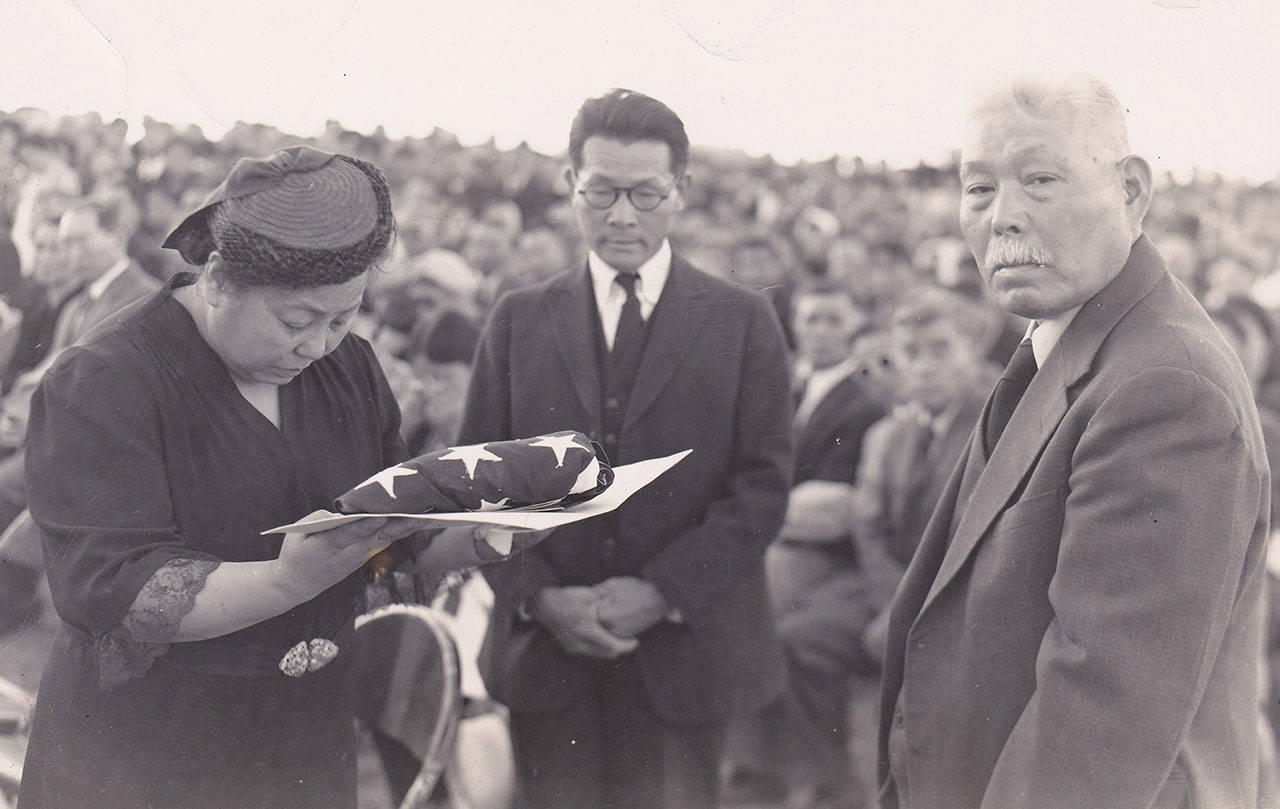Next week, the Friends of Mukai will host Tom Ikeda, the executive director of Seattle’s Densho, an organization dedicated to preserving, educating and sharing the stories of Japanese Americans who were incarcerated during World War II.
Helen Meeker, a member of the Friends of Mukai, noted that this is the 76th anniversary of Executive Order 9066, which led to the incarceration of 120,000 Japanese Americans in the United States and affected 130 Japanese on Vashon. She said the group believes it is important to mark the anniversay in part because the role that those events played in the history of the Mukai homestead.
“It carries that heritage. We feel it is necessary to speak about that event and place it in context with what is happening today,” she said, adding, “So many Japanese Americans are speaking out. They see that their story should be a cautionary tale if we are willing to look at it and listen to it.”
In a phone conversation last week, Ikeda said he will talk about some of his family’s history before the war and look at some of the steps taken then that are similar to more recent actions. His parents and grandparents were incarcerated at the Minidoka War Relocation Center in Idaho. Decades earlier, in 1908, his grandfather came to Seattle, he said, just months before an immigration order went into effect, banning Japanese immigrants. That ban followed the 1882 Chinese Exclusion Act, which barred Chinese laborers, and it came before another ban in 1924, which ended further immigration from Japan and placed additional restrictions on some other immigrants as well.
“Immigration bans. They are not a brand new thing,” he said.
Now, Ikeda noted, talk has turned more toward barring immigrants from predominantly Muslim countries. While there may not be direct linkages between then and now, in learning about what happened years ago, people will be able to see connections.
“When we are fearful and it’s said national security is at risk, we can see how easy it is to take away rights from a vulnerable group,” he added.
Ikeda noted that people might respond to such situations in different ways: joining the military, resisting or what he called “upstanding.”
His father-in-law, he said, had tuberculosis but was drafted to serve in the military. He refused and resisted the draft — and was incarcerated.
His grandparents lost a son in the war; he was killed in action, and they became gold star parents. Members from the Catholic community became upstanders and assisted them, he said. A Catholic priest helped them considerably, and when they returned to Seattle in early 1945 — the first family to do so — the Catholic church helped them with jobs and places to stay.
“That is a very personal story to me,” he added.
Ikeda also recounted how he started Densho 22 years ago. He worked at Microsoft, he said, and after he left, the company asked him to advise on an oral history project. As part of that effort, he traveled to the Shoah Foundation, at that time called the Survivors of the Shoah Visual History Foundation. Its focus is on making and storing interviews of survivors of the Holocaust and other genocides for educational purposes. While that project relied on sophisticated technology, Ikeda said he realized the work could be replicated with simpler technology — and the seeds for Densho were planted. Since that time, Ikeda has been involved with preserving more than 250 oral histories.
“We created a virtual museum with personal computers,” he said. “Our intent is that these stories will be around for hundreds of years.”
Ikeda’s presentation is set for 7 p.m. Wednesday, Feb. 7, at the Land Trust Building. Additionally, on Feb. 18, the Friends of Mukai will hold a remembrance ceremony at the Mukai House for the 76th anniversary of the signing of Executive Order 9066.



